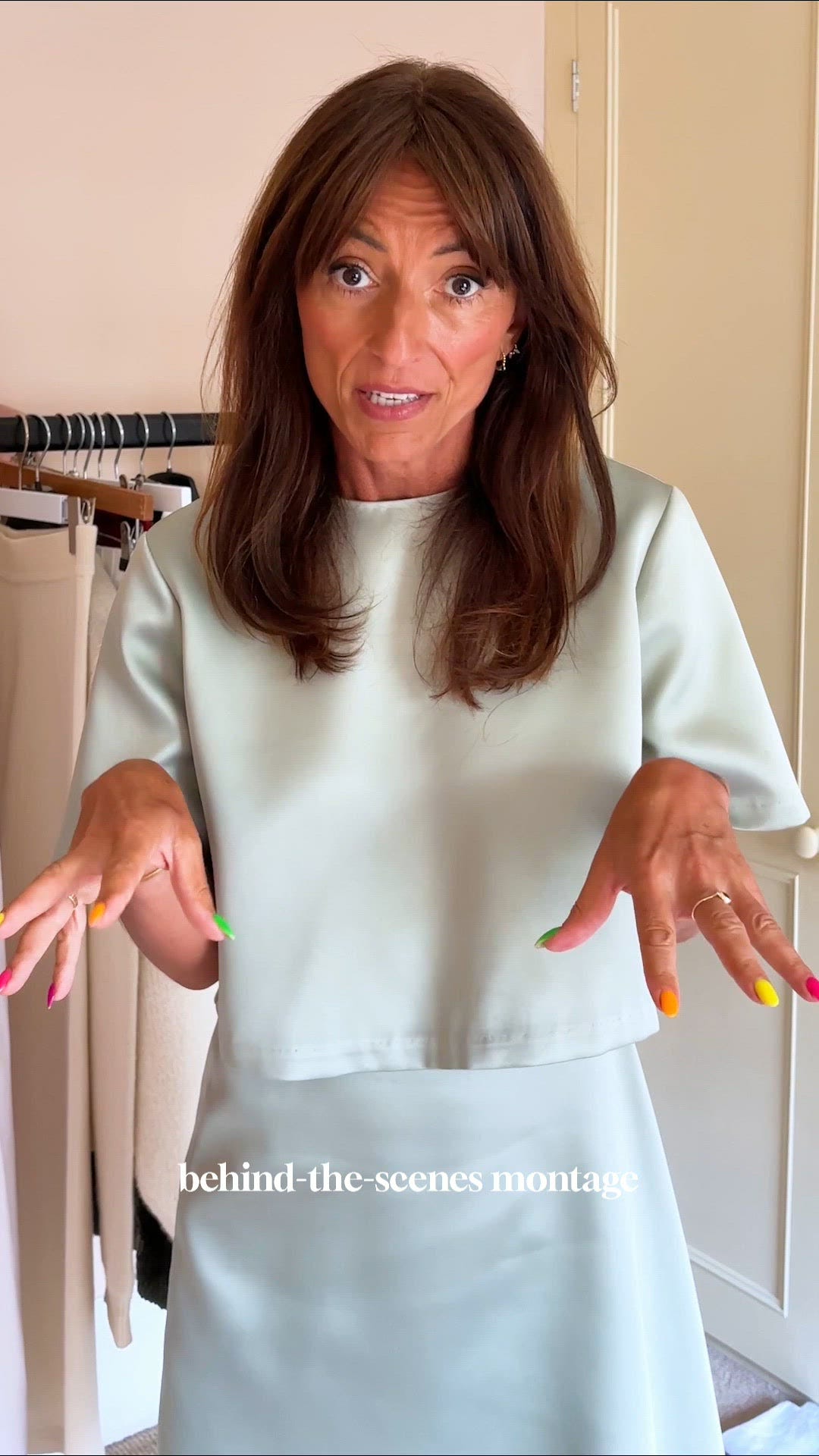Let me start this piece by saying that I LOVE my tween daughter. Rae is 12 and makes me laugh like a drain. She introduces me to new fashion trends and styles of music (and then gets severely embarrassed when I rap along to Doechii). She stops me getting stuck in my ways. She’s also a card-carrying member of Gen Alpha (the demographic group born roughly between 2010 and 2024/24, so currently aged 0-15).
These kids love food, and I’m not talking about chicken nuggets or my 1980s tween favourite Findus Crispy Pancakes. I’m talking Korean BBQ. Bubble tea. They also love rubbing pricey skincare brands into their faces. They’re savvy and sophisticated and seem very different to when we were tweens and teens, listening to our Sony Sports Walkman and chowing down on Monster Munch.
But are they really? The brain doesn’t finish developing till you’re in your mid-to-late 20s, and one of the last parts to develop is the prefrontal cortex. This is the area responsible for planning, prioritising and making good decisions. Beneath the glossy surface, the tween brain is still all over the place.
What to read next
It takes a village to navigate these choppy developmental waters. So as parents, grandparents, aunts, uncles and godparents brace for the school summer holidays and long days of family time ahead, I reached out to parent and teen coach Maria Evans to get her advice on navigating these rocky parenting years.
TikTok scrolling
My daughter is becoming more fascinated with social media with each passing day – I didn’t realise that you could watch YouTube shorts on a Switch console, so she’s already been exposed to social media content for some time. Lesson number one, therefore, is to learn about the tech they’re using.
Maria points out that tweens and teens are naturally drawn to social media and screens. ‘Their dopamine system has a heightened response to novelty, which means the instant gratification of likes, comments and new content is incredibly addictive. And because the prefrontal cortex is still developing, they also struggle to regulate screentime.’ Setting proper boundaries, therefore, is important. Each family will have different rules, but it’s good to think about switching off phones at mealtimes, bedtime and while doing homework as a start point.
Importantly (this is where I come unstuck), adults need to model healthy behaviour. I’m on my phone a lot and justify it by saying that it’s work. In fact, I’m addicted and struggle to tear my eyes away. Sometimes I’m watching a family of hedgehogs being released into the wild (I love heartwarming animal rescues), or a midlife fashion blogger telling me what to wear with barrel-leg jeans. It’s definitely not always work related. Maria agrees that teenagers can sniff out hypocrisy from a mile off. ‘If you want your teen to spend less time on a screen, then you need to think about your own screentime, too,’ she says. ‘Don’t expect them to stop scrolling unless you stop doing it, too.’ I need to face up to my own worrying phone addiction and impose boundaries on myself first, it seems.
Homework stress
When I was young, the tactic was to scare kids into doing homework. I had a teacher who told me I’d probably end up in prison if I didn’t pass my GCSEs. But when young brains are stressed, it’s exaggerated because the amygdala is highly sensitive – small setbacks can seem catastrophic. Suddenly, the fact that they ‘can’t find my favourite Sharpie pen’ means the world is ending. Maria suggests parents break tasks down into realistic study plans and promote a growth mindset.
‘You need to help them understand that mistakes aren’t a reflection of their worth. They are instead opportunities to learn and improve. Remind them that every successful person has faced setbacks.’ Instead of pointing out the dire consequences of failure, it’s about teaching self-compassion and reminding them to be kind to themselves. She also encourages parents to offer up practical support, such as helping break big homework projects down into realistic study plans. I know that I can get easily overwhelmed if I have too many things to navigate at the same time and the only way I can tackle this is to write a list and then prioritise two to three things that need doing that day. This is also the kind of plan that can work for your resident Gen Alpha representative.
General rudeness
Many parents say that their teen has suddenly become massively disrespectful. The eye rolling. The slammed doors. The mean putdowns. My daughter says I look terrible whenever I get my hair cut. Sometimes she says I look so ‘terrible’ that she won’t walk next to me. It makes me feel sad but I don't take it too personally; it’s all down to that pesky pre-frontal cortex not being fully developed. As a result, tweens and teens can find it hard to regulate their emotions, and so may appear rude or dismissive. It’s also a time when they’re prioritising their peers more than their parents, which can mean they’re less respectful of you.
Harking back to my own childhood, I infuriated my parents with my sarcasm, which I think went on for about five years. Maria advises the best approach is empathy, rather than rage. ‘Stay calm, call it out gently and encourage them to think about the impact of their words.’
This was an important learning for me, as I tend to be easily triggered by my daughter. I’ve learnt to walk away for a few minutes, compose myself and then come back into the fray.
Independence wars
Parenting through this phase of a child’s life means a certain amount of letting go, versus consistently trying to control where they go, who they see and what they’re up to. ‘We only learn by going through certain experiences, and we have to be mindful of giving our children some of the freedom we had when we were growing up,’ Maria says.
So if you’re haunted by mistakes you made as a teen, take heart. You survived and learned a massive amount. You can do this. Raising Gen Alpha builds our own resilience, too, right?
5 Golden Rules of Parenting Gen Alpha
Start conversations about difficult things. Online, today’s kids are exposed to far more troublesome content than we were. Make sure yours knows they can talk to you if they see anything that disturbs them or raises concerns. Porn is a classic example – let them know you’re open to talking about it if they need to.
Model the values and behaviour you want from them. If you’re stuck on your phone or laptop and constantly in a panic, you can’t really preach about screentime boundaries and being mindful and calm. Be the kind of person you want them to be.
Encourage positive self-talk. Some of us were criticised and cajoled into good behaviour as children. Instead, try to reassure your children that you know they’re doing their best. Don’t always point out what they’ve done wrong. And remember, mistakes are normal and help you learn and grow.
Find screen alternatives. Encourage some activities that get them outside or a hobby that drags them away from phones and TV. Grandparents can be particularly good at this, passing down skills and hobbies.
Share stories. I often talk about how difficult I found my teen years, and how I found a way through. Sure, sometimes I get a bored expression, but it helps remind my daughter that while the world looked different, tween problems are age-old and it almost always works out in the end.













